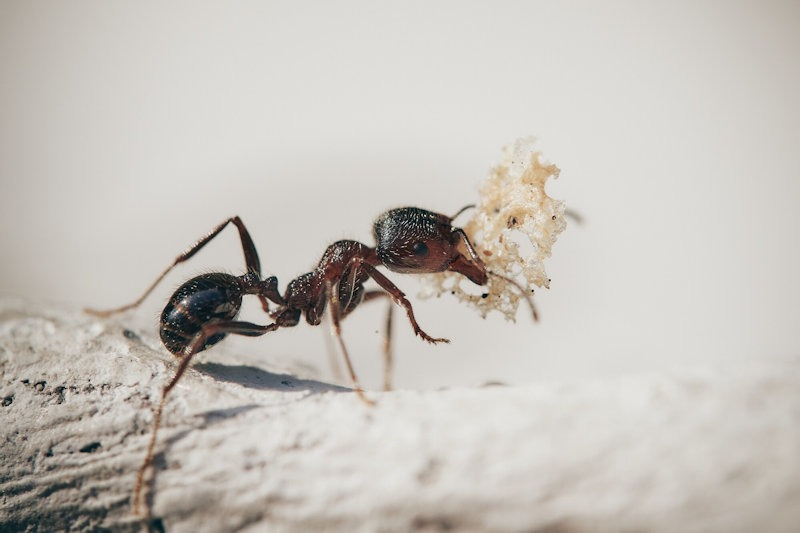In a world where the small and mighty ant makes its way, uninvited, into our homes, we find ourselves at a crossroads. The choice is between harsh chemical repellents and the gentle, yet effective, embrace of nature’s own solutions. This article delves into the realm of natural ant repellents, offering eco-friendly strategies to safeguard our homes from these industrious invaders.
Essential Oils: Nature’s Fragrant Barrier
One might not immediately think of essential oils when it comes to warding off ants, but these potent essences are a cornerstone in the natural repellent world. They are not just for soothing the mind or scenting the air. Peppermint oil, for instance, is more than a refreshing aroma. Ants find its strong scent disorienting, turning away from areas where it lingers. Similarly, tea tree oil, with its robust medicinal fragrance, creates an invisible barrier that ants hesitate to cross.
Vinegar: The Acidic Antidote
Vinegar, a staple in every kitchen, plays a pivotal role in this battle against ants. Its acidic nature is off-putting to ants, disrupting their scent trails and confusing their navigation. A simple mixture of water and vinegar sprayed around entry points serves as a deterrent, making your home less inviting to these persistent creatures.
Lemon Juice: Citrusy Sentry
Lemon juice, with its bright and zesty presence, is another natural ant deterrent. Its strong citrus scent masks the scent trails ants rely on. A solution of lemon juice and water, applied to windowsills, doorways, and other ant entry points, acts as a natural barrier.
Cinnamon: Spicy Sentinel
Cinnamon, a spice that evokes warmth and comfort in the human heart, is surprisingly formidable against ants. Its strong, spicy scent is a natural repellent. Sprinkling cinnamon at entry points or using cinnamon oil as a barrier offers a pleasant yet effective method to keep ants at bay.
Coffee Grounds: Bitter Barrier
The morning ritual of brewing coffee unwittingly provides a tool against ants. Used coffee grounds, spread around the garden and near entry points, emit a bitter scent that ants find unappealing. This method not only repels ants but also recycles your coffee grounds in an eco-friendly way.
Diatomaceous Earth: The Natural Deterrent
Diatomaceous earth, a powder made from fossilized algae, is a natural insecticide. When ants traverse this powdery substance, it absorbs the oils from their exoskeletons, leading to dehydration. While lethal to ants, it’s harmless to humans and pets, making it an ideal solution for indoor use.
Borax and Sugar: Sweet Deception
A mixture of borax and sugar serves as a clever trap. Ants, attracted to the sugar, carry the borax back to their colony, which eventually leads to its decline. This method requires caution, as borax can be harmful if ingested by pets or children.
Cucumbers: Unexpected Guardians
Surprisingly, cucumbers serve as a natural ant repellent. The bitter compounds in cucumber peels are distasteful to ants. Placing cucumber slices or peels near known ant entry points can help deter these insects.
Mint: Refreshing Repellent
Mint, known for its invigorating scent, is also an effective ant repellent. Planting mint around your home or using mint oil in areas where ants are prevalent can help keep them at bay.
Embracing Nature’s Wisdom
In our quest to live harmoniously with nature, turning to natural ant repellents is a step in the right direction. These eco-friendly solutions, ranging from the aromatic to the acidic, offer a way to deter ants without resorting to harsh chemicals. By embracing these natural methods, we not only protect our homes but also contribute to a healthier, more sustainable world.
In this delicate dance with the natural world, we find that the answers often lie in the simple, everyday elements around us. Essential oils, vinegar, lemon juice, cinnamon, coffee grounds, diatomaceous earth, borax, cucumbers, and mint stand as testament to nature’s ingenuity. They remind us that in our battle against the tiny invaders, we can choose paths that are kind both to the earth and to our peace of mind.

